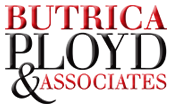
What is a BOI Report? The newest cost of running a business.
February 2, 2024LLCs vs DBAs: Choosing the Right Structure for Your Business
You decided to start your first side hustle, self-employed gig, or even purchase your first rental property. Congratulations! From working with hundreds of those who have gone before you, the decision you made can be one of the most rewarding you ever make.
As a business owner or landlord, one of the earliest and most crucial decisions you'll make is choosing the right legal structure. For individuals looking to start a business or invest in rental property, understanding the differences between a Limited Liability Company (LLC) and a Doing Business As (DBA) - also known as a fictitious name - is essential. As a CPA specializing in income tax, I aim to clarify these distinctions to help you make an informed choice that aligns with your business goals and financial strategy.
Understanding LLCs (Limited Liability Companies)
What is an LLC? An LLC is a legal entity that provides limited liability protection to its owners, commonly referred to as members. This means that the personal assets of members are typically shielded from business debts and liabilities incurred by the company.
Benefits of an LLC:
- Limited Liability: An LLC (used correctly) protects personal assets from business liabilities. This means that you are not personally liable for business debts.
- Flexibility: An LLC allows for many different management structures and ownership arrangements. In fact, an LLC is potentially the most flexible business structure to grow with your business.
- Pass-through Taxation: Profits and losses pass through to the members' personal tax returns, avoiding double taxation like that of corporations. Depending on your ownership structure and profitability, this could also lead to significant tax savings over being just self-employed.
Drawbacks of an LLC:
- Formation and Ongoing Costs: Initial setup costs can include state filing fees, attorney fees, and in some states, publication fees. Ongoing costs involve annual state fees, registered agent fees, and compliance expenses. At Butrica Ployd, we can help you with these to keep costs lower, but they still require an up front investment.
- Compliance Requirements: Typically, LLCs require filing annual reports and adhering to state-specific regulations, which can vary. The annual report requirements include Delaware, New Jersey, and – as of this year – Pennsylvania.
- Liability Limitations: While an LLC does provide some protection, there are several ways you can still be personally liable. This includes if you mix business and personal funds or if a lawsuit can prove negligence on your part as the business owner. Moreover, most banks will require you personally guarantee any debts of the business.
Understanding DBAs (Doing Business As) or Fictitious Names
What is a DBA? A DBA, or fictitious name, allows a business to operate under a name other than its legal name without creating a separate legal entity.
Benefits of a DBA:
- Low Setup Costs: DBAs usually involve minimal expenses compared to forming an LLC – though that also can depend on your state.
- Simplicity: DBAs are usually easy to register and use for sole proprietors or partnerships.
- Operational Flexibility: DBAs enable businesses to conduct transactions and advertise under a different name.
Drawbacks of a DBA:
- Lack of Liability Protection: Does not provide personal asset protection; the owner is personally liable for business debts and obligations.
- Limited Scope: Suitable mainly for sole proprietorships or partnerships, with restrictions depending on state laws.
- Limited Tax Strategy: As a DBA, you must file as a sole proprietorship or partnership. This means that tax strategies available to S Corps and C Corps are off the table. If your business is going to be your main source of income, that could cost you significantly at tax time.
LLCs vs DBAs – Comparing Key Compliance Factors
Setup Costs
LLC Setup Costs:
Incur state filing fees, which vary by state.
Legal fees if assistance from an attorney is sought.
Potential publication costs in states requiring such notices.
DBA Setup Costs:
Minimal fees, generally limited to filing a form with the county or state.
Ongoing Costs
LLC Ongoing Costs:
Annual state fees and franchise taxes.
Fees for a registered agent, if required by the state.
Compliance costs, including filing annual reports and maintaining good standing.
DBA Setup Costs:
Renewal fees, if required annually or periodically by the state or county.
Annual Report Requirements
LLC Annual Requirements:
File annual reports with the state, updating member information and paying associated fees.
DBA Annual Requirements:
Typically less formal, with fewer ongoing reporting obligations unless part of a larger entity.
Beneficial Ownership Information (BOI) Reports
LLC BOI Reports:
Initial BOI Reports should be filed within 30 days of formation.
Updated BOI Reports must be filed within 30 days of a change of address, expiration of your driver's license, or ownership changes.
Penalties for non-compliance can be up to $500/day.
DBA BOI Reports:
Generally, BOI report are not applicable unless part of a larger entity requiring such disclosures.
To learn more about BOI Reporting, check out our article going into the detail on how you can prepare.
LLCs vs DBAs - Tax Planning Considerations
LLC Taxation:
- Pass-through taxation: Profits and losses flow through to the members' personal tax returns.
- Flexibility in tax planning, such as electing S-corporation status for potential tax savings.
- Self-employment taxes apply to members' income.
DBA Taxation:
- Pass-through taxation if operated as a sole proprietorship or partnership.
- No separate entity for tax purposes; all income and expenses are reported on the owner's personal tax return.
Choosing between an LLC and a DBA depends on understanding your business's needs and risk tolerance. An LLC offers robust liability protection and operational flexibility but entails higher setup and ongoing costs. Alternatively, a DBA provides simplicity and lower initial costs but exposes owners to personal liability. For personalized guidance tailored to your specific situation, consulting with a CPA or legal advisor is highly recommended. By making an informed decision, you can lay a solid foundation for your business endeavors or property investments.




